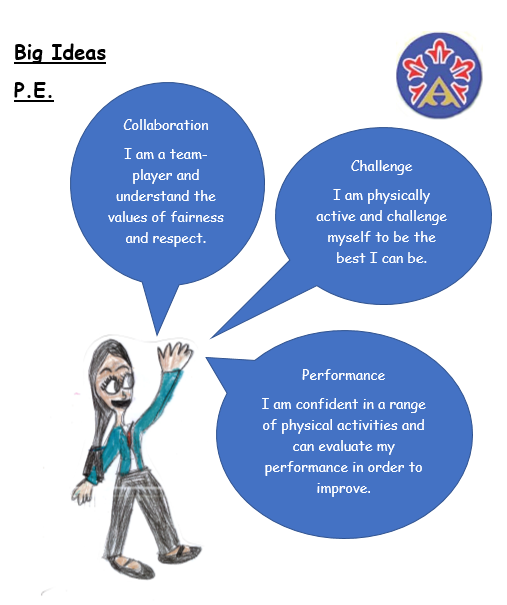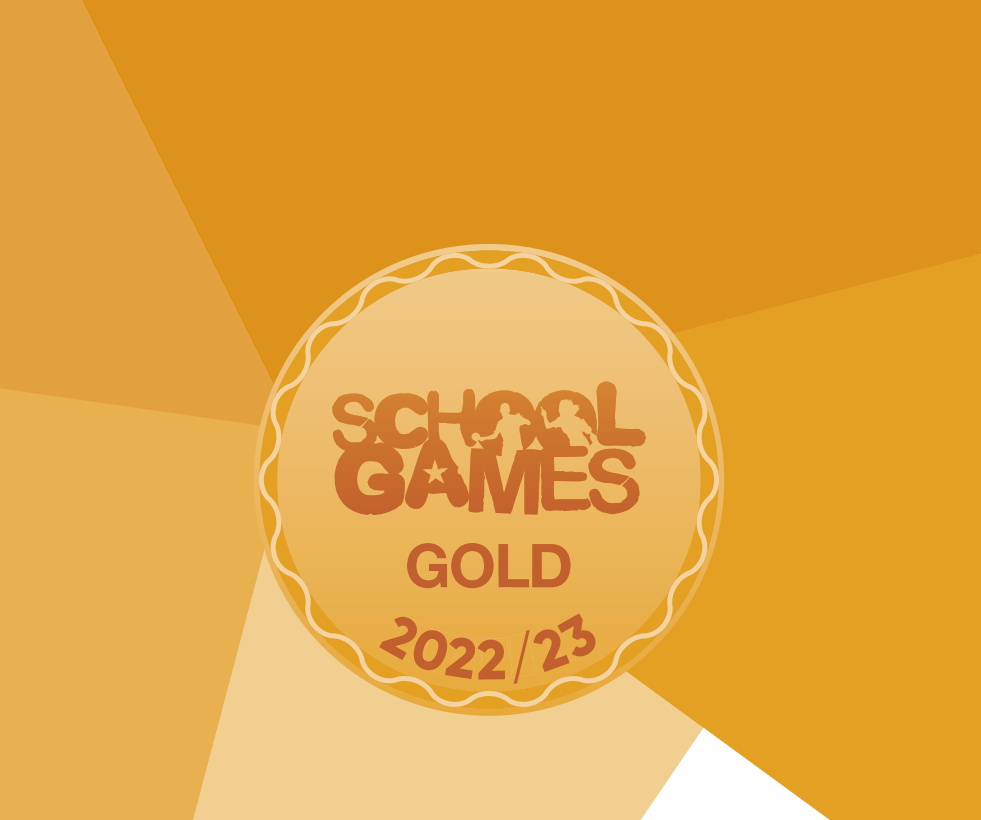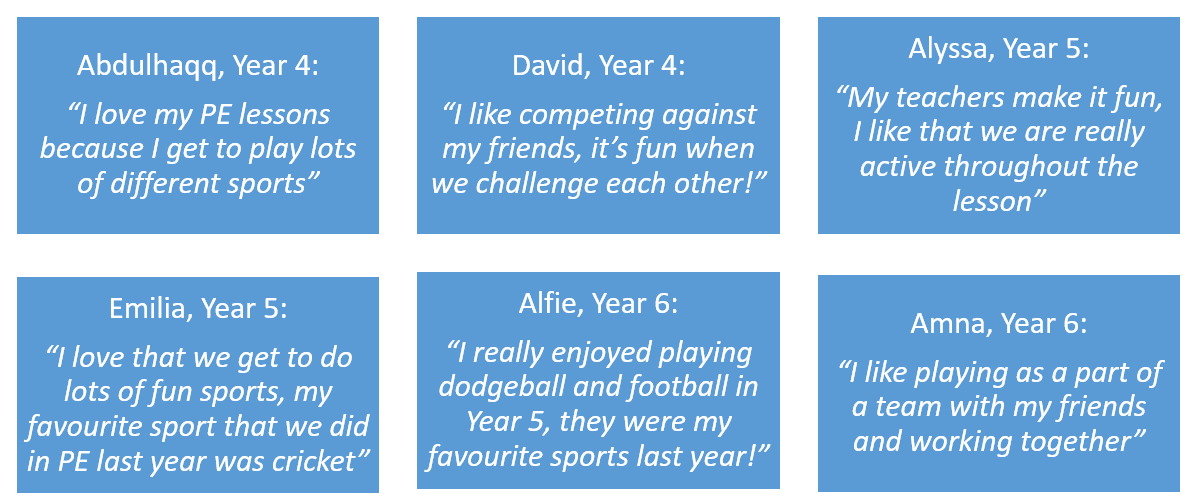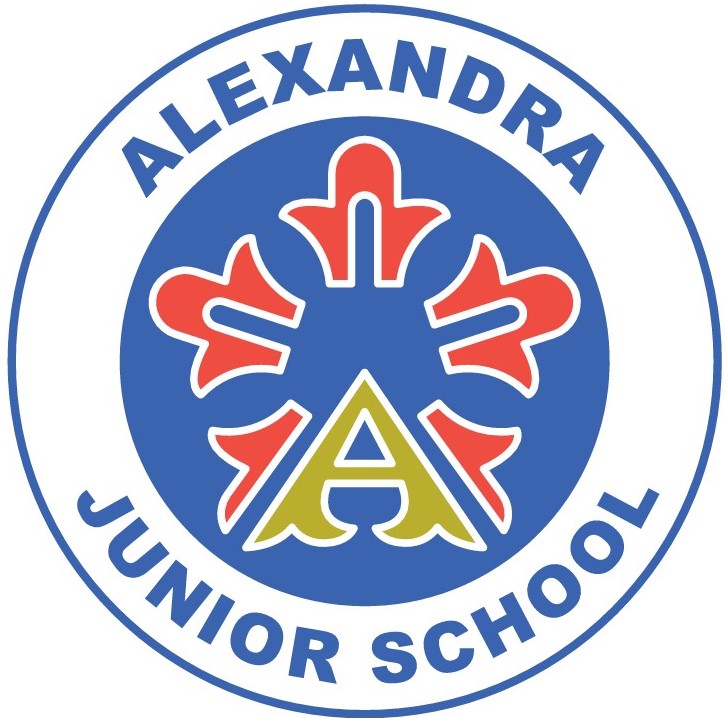Physical Education: PE
Physical Education (PE) Vision
(Subject Lead: Mrs G Doyle)
At Alexandra, we believe that high quality Physical Education (P.E.) and School Sport is vital in developing the whole child. We have developed a PE curriculum which provides high quality provision and offers children a chance to participate in a broad range of sporting/ physical activities. We strive to enable our children to become healthy, independent, active and responsible members of society through PE events inside and outside of school.
As well as ensuring children are physically healthy and ready for their next stage of education, our inclusive P.E. curriculum ensures that pupils of all abilities access the range of activities that we offer and that they are physically active for sustained periods of time in order to encourage them to lead healthy, active lives. Children will develop the fundamental movement skills (agility, balance and coordination) and take part in increasingly competitive situations, against themselves and others. P.E. also has considerable potential to contribute to much wider areas of learning in terms of developing the whole child, including the development of physical, social, creative, personal and cognitive skills, which is a great link to growth mind-set. We ensure that the children are also confident in working with others. Teamwork is an essential skill which will have a huge impact in every child’s daily life. We encourage all children to co-operate and communicate with each other during physical activities but also socially outside of lessons.
In addition to this, specialist coaches enhance the teaching and learning of P.E. within the curriculum and provide extra-curricular activities. Furthermore, participation in intra-school and inter-school competitions ensures participation in physical activity outside of the P.E. curriculum. There are also opportunities to take on leadership roles where the pupils build character and embed values such as fairness, teamwork and respect. Regular participation in sport and physical activity helps to reduce the risk of heart failure, improve core physical fitness, help with weight management, promote good health, instil self-discipline, improve self-confidence, reduce stress and develop lifelong learning skills.
Following from this, we promote healthy living and eating in school, through PSHE, Science and DT lessons too. Our future plan is to build an allotment to grow fresh fruit and veg for the children to use during DT and Science lessons. With the percentages of obesity rising, we believe it is our responsibility to educate the children about the effects of eating unhealthy foods against healthy range of foods. We explain how a healthy and balanced diet is essential for the human body to stay fit and cause less health related issues in the future.
We know it is an important part of children’s education to help them to understand how they are developing personally, morally and socially. Physical education helps all children to personally develop through meeting their own individual targets, morally through rules/routines during activities and knowing what is acceptable or not and finally, socially through communication with others when completing activities.
Integrated within our daily life is our Alexandra Promise to our pupils and our school context-based drivers, the 5Es (Excel yourself, Embrace yourself, Explore the world, Engage with others, Express yourself). For instance, our language rich and discussion based PE provision supports essential knowledge and skill development for the pupils at Alexandra Junior School (links with Express yourself).
PE plays a huge factor when linking learning to the 5Es, this is the best opportunity for a child to embrace themselves, explore different activities and skills, as well as engage with others. We believe that PE can help a child to excel and feel confident when using skills in and outside of school. They then can apply the same knowledge and skills to other areas of the curriculum as well on a daily basis. (Links with express and excel yourself). They can share their knowledge with others and help them build their confidence using the same skills. (Links with engage with others).
Swimming is also an essential life skill. We strive to ensure all our pupils develop their skills through Swimming lessons and put in place extra support to enable their progress by the end of KS2. The initial focus for our pupils is to provide them with an experience of being in water, which will then give them an invaluable foundation to develop their swimming skills. As part of the learning, children are able to develop an understanding of the benefits of swimming for their fitness and life safety skills. Early experiences of the water will involve the appropriate equipment to support children’s development (floats, armbands etc) as they gain the skills to be able to float and produce effective strokes. By the end of Key Stage Two, pupils are expected to be able to swim competently, confidently and proficiently over a distance which is at least 25 metres, using a variety of different strokes to do so. To add to this, children will be taught to use their understanding of life safety to perform safe self-rescue in a series of different situations.
We welcome you to review the Curriculum and Pedagogy document and Sports Premium Plan to see how the P.E. curriculum is put into practice.
Subject Lead Statement
My name is Mrs G Doyle and I am the PE co-ordinator here at Alexandra Junior School.
At Alexandra our vision for Physical Education and Sport is that every child should have the opportunity to take part in physical activity on a regular basis and become more physically confident and competent. We hope that, through all the sporting opportunities and physical activity we offer, the children will potentially develop a love and passion for sport and continue this into their later lives.
We believe that high quality Physical Education (PE) and school sport is vital in developing the whole child. We have developed a PE curriculum which provides high quality provision and offers children a chance to participate in a broad range of sporting / physical activities. Our PE curriculum is inclusive to all and provides opportunities for them to excel in their learning.
Through PE and we aim to develop four key aspects to develop the child as a whole. These are
- Physical – How the body systems work together to create movement
- Intellectual – The way in which the children think about a task
- Emotional – How the children feel about themselves
- Social – The way children interact with each other
We aim to provide the children with at least 2 hours of fun, exciting and active PE lessons every week and to keep the children healthy and active every day with at least 30 minutes of physical activity a day and by educating them on a healthy, balanced diet and lifestyle.
At Alexandra, we also strive to give as many children as possible the opportunity to compete in a variety of competitions, during school time or by representing the school at local events. We hope that in doing so the children will develop greater confidence, team work and learn to win or lose with grace and sportsmanship.
After school clubs are also an important part of the PE journey at Alexandra and we offer a wide range of activities over the school year with strong community links also formed and children signposted to further take part in the sports they experience.
At present we hold the Bronze Games mark award and are striving for our Silver award.
PE and Sport are a proud part of the Alexandra experience and we hope that this continues to grow in the future and prepare our children for life after Alexandra.


School Games Mark
For the 22/23 academic year, we have been awarded the Gold Award by the School Games Mark for our participation in sport inside and outside of our school!
Pupil Voice
Each academic year we gather the views of our pupils so that we can reflect on the PE curriculum, the things that they enjoy and development points for the subject. This is used to give the children some ownership on helping to map out elements of the curriculum.

